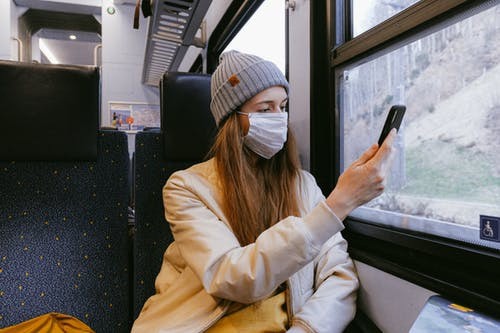
Scientists believe that a mobile coronavirus tracing app can help to significantly slow the rate of coronavirus transmission. A team of researchers from Oxford University has been studying whether mobile apps can help slow the spread of COVID-19 as they learn how the virus is being transmitted.
The Oxford bioethicists recommend a rapidly built app could bring different countries out of lockdown safely, according to a report for NHSX and the Norwegian Institute of Public Health.
The Ministers of the United Kingdom government is working on its own mobile app that uses Bluetooth technology being proposed by the NHS as a means to identify who coronavirus patients have been in contact with to trace them. They hope that when the lockdown is lifted, this application will help stop the spread of COVID-19 to avoid future restrictions being needed.
Researchers say that the application should be launched quickly because time is of the essence when it comes to getting the most out of a virus tracing app. A Bluetooth-based app would not need to store or track specific locations and it would be enough to meet the requirements of slowing the virus transmission.
The Contact Tracing App
Singapore government is currently using this technology.
As it relies heavily on remembering who the coronavirus patients have been in contact with, the NHS requires at least 50 percent of the population to install the app for it to work. It will then detect other phones using Bluetooth signals and record those contacts in close vicinity on the device.
The Oxford research team says that their mathematical models support this approach that uses low power signals. Their team focused on working out the way the virus spreads and to know the best possible approach using technology to slow the spread.
Research co-author David Bonsall said that the app uses a low-energy Bluetooth to log a memory of all the app users with whom a person comes into close contact over the last few days. Then, if a person becomes infected, the people he had close contact are alerted instantly and anonymously and are advised to go home and self-isolate.
It's Downside
Although this Bluetooth app could help the government in tracking those who had been in contact with those infected people, it has some risks especially with the reliability of the short-range and low-power wireless technology. Nicky Whiting, Head of Compliance at Bulletproof, said that if this app is launched quickly it could be worse as Bluetooth is known to have vulnerabilities.
Developing an app like this can result in poorly executed code that potentially contains sensitive information, Whiting told the MailOnline.
Mark Skilton from Warwick Business School said that the app raises a key conflict between the need for mass surveillance on the virus' spread and the issue of privacy. It may sound Orwellian to use devices on people's mobile phones to monitor specific data and send messages to change the behavior of the people. But we may need to use all the digital tools available to combat this pandemic.











